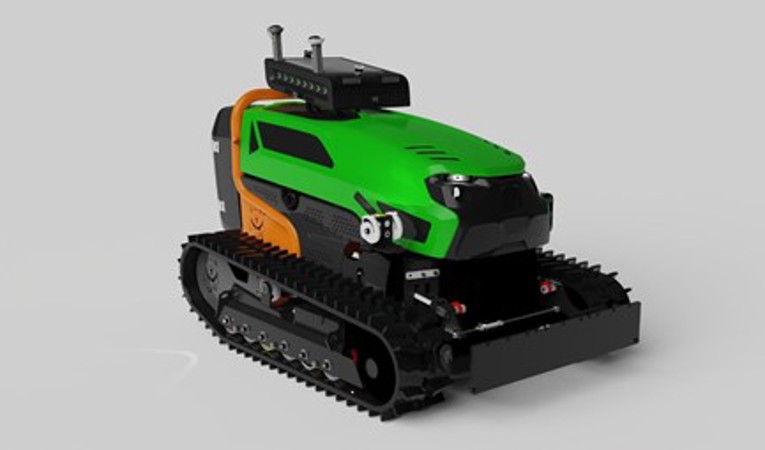Autoscale

Summary
1. Automated and Integrated Mobility
Nouvelle Politique Régionale (NPR)
Builtec Sàrl, CertX, ETA Fragnière, LOXO
Marc-Antoine Fénart
Skills directory
October 2024 - October 2025
The AutoScale project aims to develop a retrofit to convert a radio-controlled robot into an automated, remotely-operated agricultural robot, improving productivity, durability and safety through advanced automation and certification technologies.
The agricultural sector is facing major challenges, including rising food demand, labour shortages and the need to adopt more sustainable agricultural production practices. Traditional methods are struggling to meet these demands, making the adoption of new automation and robotization technologies essential.
The AutoScale collaborative project aims to overcome these obstacles by developing a retrofit that converts a radio-controlled robot into an autonomous one capable of performing a variety of agricultural tasks with greater precision and efficiency. AutoScale's main objective is to provide an MVP (Minimum Viable Product) of the MDB LV500 Pro multifunctional agricultural robot in autonomous mode. Based on iTARS (Intelligent Teleoperated and Autonomous Robotic System) technology, this robot must be capable of performing tasks such as planting, irrigation, harvesting and crop processing. Its design must meet a requirement for autonomous or teleoperated operation, enhancing safety and offering maximum flexibility to its end-users.
The expected results of the Autoscale project include technological, certification and testing elements. On the technological front, the innovation consortium formed with the ROSAS Competence Center of the Fribourg School of Engineering and Architecture (HEIA-FR) aims to develop an advanced autonomous agricultural robot, integrating sophisticated automation systems to improve productivity and reduce dependence on labour. Certification is a prerequisite for marketing an autonomous, remotely-operated robot, which is why the consortium is focusing on robot safety and compliance, drawing up the documents required for certification using AI tools. Finally, the consortium is carrying out rigorous tests under real-life conditions to validate the robot's efficiency and reliability for various agricultural applications.
The expected spin-offs and impacts of the Autoscale project are considerable. They will optimize agricultural practices by increasing operational efficiency and reducing labour costs for repetitive and time-consuming tasks. In addition, the project partners will benefit from significant opportunities to expand their areas of commercial activity: Builtec will be able to deploy autonomous robots on a large scale, CertX will offer specialized certification services, LOXO will develop even more robust and efficient algorithms for autonomous vehicles, and ETA Fragnière will identify new agricultural activities suitable for automation. These advances will strengthen the competitiveness and innovation of each partner, while promoting more sustainable agriculture.